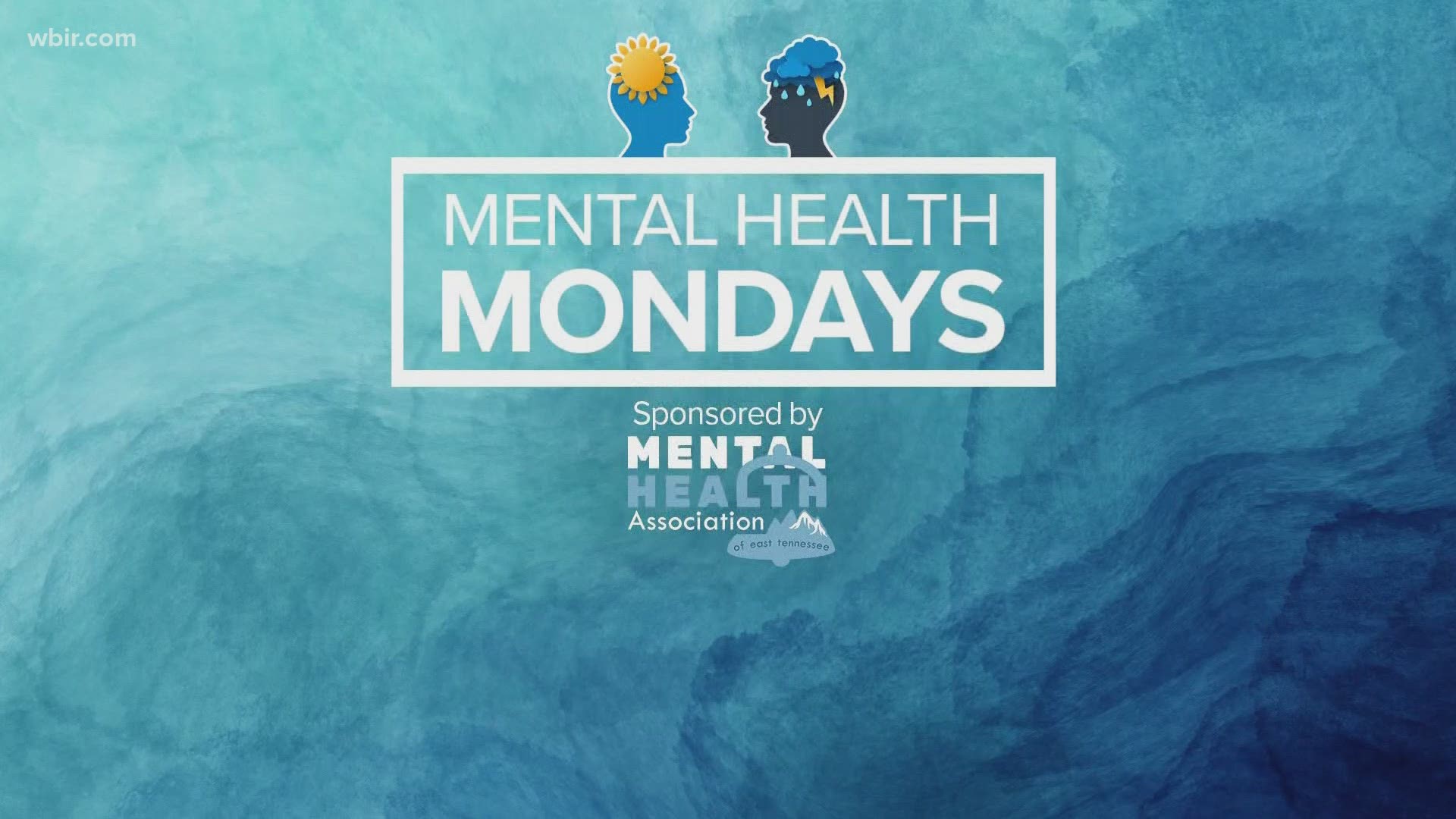KNOXVILLE, Tenn. — If you've been feeling anxious lately, you're not alone.
According to the Anxiety and Depression Association of America, 40 million American adults deal with some form of anxiety every year.
Experts said in light of the pandemic, anxiety is even more common, impacting millions of people in millions of ways.
Anxiety is so dependent on the person that some people struggle to know if they're anxious or just stressed.
"Anxiety begins to differ when we're feeling those same kind of intense emotions and heightened stress but we have no event or challenge ahead of us," said Greyson Dulaney, MSSW, a mental health educator with the Mental Health Association of East Tennessee.
Dulaney said if that stress remains constant for about two weeks, it could be diagnosed as anxiety.
"Anxiety can occur at any time, it can raise our body's blood pressure, it can increase our heart rate," she said.
Not every case of anxiety needs a therapist, just some self care, whatever that means to you.
"Maybe find three to four activities that you know help to fill up your cup when it's starting to run a little low," said Dulaney.
Some activities to help reduce anxiety and stress may be:
- Yoga, meditating or stretching
- Journaling thoughts or goals
- Coloring in adult coloring book
- Taking a walk
- Cuddling your pets
- Listening to your favorite music
- Drinking more water
- Spending time outside
- Painting, drawing or crafting
Some people find using weighted blankets or eye masks calming, while others swear by essential oils.
Dulaney said you don't need to rush out and buy an item to curb your anxiety.
Your mind has a lot of power on its own.
Simple breathing exercises can have a big impact on calming you down and restoring mindfulness.
Here's one you can do anywhere any time:
"Put your hand over your belly right above your bellybutton," said Dulaney. "Place one hand on your chest as well. Take a few deep breaths and as you're breathing you simply rub your belly and it just helps to settle our body's nervous system and bring us back in to that present moment."
Dulaney uses that exercises when she speaks at middle and high schools, and notices it helps students focus.
If you think your anxiety may be more severe, a therapist can help you create a plan to handle the pressure.

